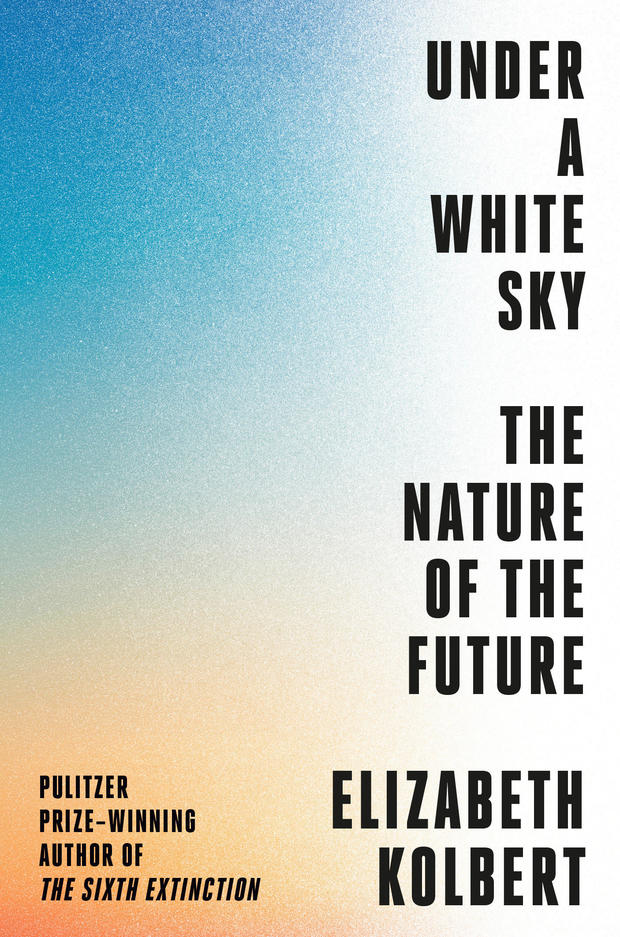In “Under a White Sky: The Nature of the Future” (Crown), New Yorker magazine writer Elizabeth Kolbert examines the seemingly futile efforts we human beings must engage in to address our species’ depredation of the planet.
That man should have dominion “over all the earth, and over every creeping thing that creepeth upon the earth,” is a prophecy that has hardened into fact. Choose just about any metric you want and it tells the same story. People have, by now, directly transformed more than half the ice-free land on earth – some twenty-seven million square miles – and indirectly half of what remains. We have dammed or diverted most of the world’s major rivers. Our fertilizer plants and legume crops fix more nitrogen than all terrestrial ecosystems combined, and our planes, cars, and power stations emit about a hundred times more carbon dioxide than volcanoes do. We now routinely cause earthquakes. (A particularly damaging human-induced quake that shook Pawnee, Oklahoma, on the morning of September 3, 2016, was felt all the way in Des Moines.) In terms of sheer biomass, the numbers are stark-staring: today people outweigh wild mammals by a ratio of more than eight to one. Add in the weight of our domesticated animals – mostly cows and pigs – and that ratio climbs to twenty-two to one. “In fact,” as a recent paper in the Proceedings of the National Academy of Sciences observed, “humans and livestock outweigh all vertebrates combined, with the exception of fish.” We have become the major driver of extinction and also, probably, of speciation. So pervasive is man’s impact, it is said that we live in a new geological epoch – the Anthropocene. In the age of man, there is nowhere to go, and this includes the deepest trenches of the oceans and the middle of the Antarctic ice sheet, that does not already bear our Friday-like footprints.
An obvious lesson to draw from this turn of events is: be careful what you wish for. Atmospheric warming, ocean warming, ocean acidification, sea-level rise, deglaciation, desertification, eutrophication – these are just some of the by-products of our species’s success. Such is the pace of what is blandly labeled “global change” that there are only a handful of comparable examples in earth’s history, the most recent being the asteroid impact that ended the reign of the dinosaurs, sixty-six million years ago. Humans are producing no-analog climates, no-analog ecosystems, a whole no-analog future. At this point it might be prudent to scale back our commitments and reduce our impacts. But there are so many of us – as of this writing nearly eight billion – and we are stepped in so far, return seems impracticable.
And so we face a no-analog predicament. If there is to be an answer to the problem of control, it’s going to be more control. Only now what’s got to be managed is not a nature that exists – or is imagined to exist – apart from the human. Instead, the new effort begins with a planet remade and spirals back on itself – not so much the control of nature as the control of the control of nature. First you reverse a river. Then you electrify it.
Excerpted from “Under a White Sky” by Elizabeth Kolbert. Copyright © 2021 by Elizabeth Kolbert. All rights reserved. No part of this excerpt may be reproduced or reprinted without permission in writing from the publisher.
For more info:


